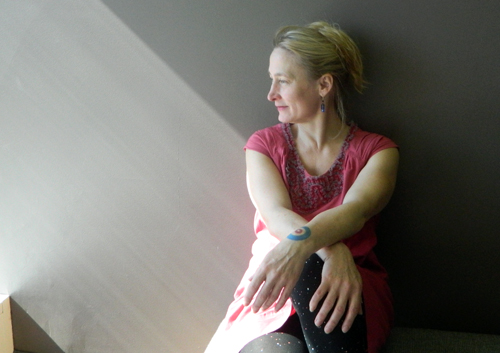
Philosophy professor Karen Houle says she’s always been interested in classic feminist issues such as abortion. For about 30 years, she read books and articles on the topic but says none of the approaches to the ethics of abortion seemed honest or complex enough. “They seemed rigged for a particular outcome,” she says. “There was something missing in the framework of the arguments.”
That’s what inspired her to write her newest book, Responsibility, Complexity and Abortion, which was published in January (the launch will be held May 20 at 7:30 p.m. at the E-bar in Guelph).
Houle says she found a new framework to write about this topic when she was studying the writing of post-structuralist philosophers such as Michel Foucault, Luce Irigaray and Jacques Derrida. “One of Derrida’s ideas is that ethics is ‘im-possible.’ You need that hyphen in the word – ‘im’ and ‘possible.’ By that he means we can never actually get ethical life right, but we have to try to anyway,” explains Houle. “Our lives are difficult and complex, and we have blind spots and only partial understanding of many things, yet we are still capable of being committed to doing the right thing.”
According to Houle, many 20th-century ethical thinkers from French and German traditions have written that when something unwelcome happens – such as getting cancer or losing a job or having to move or learning that you are pregnant when you did not want to be – new possibilities open up that were not there before.
Derrida even calls death “a gift” in part because even though it takes people away, it also gives those who knew the dying person new possibilities as well: new feelings, new insights, new connections and a new relationship to their own future.
Houle saw right away that these ideas could be applied to abortion. “It is not just a medical experience, not just a feminist ideal that women should have control over their bodies, and not just an ethical case study you can build up arguments and positions for or against. It is more subtle and complex,” she says.
Abortion also connects with bodies and sexuality in ways beyond the actual phenomenon of unwanted pregnancy. By examining the topic of abortion as a feminist thinker, Houle wanted to include men in the discussion as well as women who had chosen not to terminate their pregnancies or to not have children.
Her proof: after she did her first talk on the topic, a woman left her a note that read: “I gave my child up for adoption 10 years ago, and nothing I have ever heard or read about adoption has been as true as what you said about abortion.”
The book follows a particular method to exhibit that complexity and draw it out in the reader’s own thinking. The opening section includes material Houle found from cultural artifacts expressing different points of view on abortion. Another section discusses how the polarization of the topic happens, including how the way we tend to think about ethics itself plays a role in reducing complexity to something overly simplistic and rational.
“We have a cultural pathology around good and bad, right and wrong that has made abortion difficult to talk about well. We try to turn complex issues into black and white.”
For example, she points out that the majority of women who have had abortions never talk about them with others, and many have hidden their experiences from family and close friends out of fear or shame.
There are, however, events organized by pro-life organizations where women speak about the regret, sorrow and grief they feel about having had an abortion. In contrast, some feminist organizations have women speak out about how glad they are that they had an abortion, and how the experience empowered and strengthened them.
Houle points out that in both cases, the women may feel they can’t express any opposite or conflicted emotions, whether it is a pro-life woman who also felt some relief that she did not have to continue the pregnancy, or the feminist speaker who also felt some grief and sadness about her abortion.
In the book, she describes her own deeply conflicted experiences of having abortions, her teaching of the topic in classrooms and the inadequacy of those pedagogical frameworks for including many voices, and the ongoing mourning that she describes as both painful and joyous.
“Our society’s way of thinking about things contributes to the difficulty of developing a systematic yet compassionate and holistic ethical approach to abortion and similar issues related to sexuality and fertility, including miscarriage, impotence and rape,” says Houle.
Her goal for writing about the topic has been not only to encourage honest and courageous discussion of the complex issues around abortion, but to use abortion as an example of how we can develop an ethical approach to anything difficult and divisive – such as life in general.
Houle says, “I want to encourage critical self-reflection and to go even deeper than that – shining floodlights into your head and not letting you, the reader, off the hook. I’ve created a value-laden territory, and you can go into and walk around and come out with a different perspective, not just on abortion but a different sense of ethicality itself.”